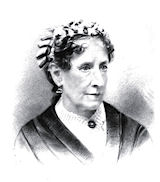(W. W. Phelps To W. T. Lusk)
Nov. 28th, Evening.
My dear Will:
The end of a day marked by the alternation of joy with sorrow in an extreme degree. This morning the Postman gave me a large envelope covered with postage stamps, and marked with the seal of the State. It contained two papers — the one in a large envelope with the same seal upon its face and the superscription Major W. T. Lusk; the other, the letter explanatory from the Gov.’s Secretary, which I enclose.
You can imagine my gratification — the labor of months rewarded and the suspense ended. I made it a holiday.
Your Uncle, who had travailed with me, should rejoice over the birth. Down I rattled in the omnibus, with that beautiful Commission in my pocket — surest of the sure, for hadn’t I it in black and white and on parchment? I could tell any one, but, except Nelly and our folks who were rejoicing over it at home, Mr. I. N.[1] should be the first.
I left the omnibus at the Post-Office, where I dropped in a letter to tell your mother that I had a Commission, in which the Commonwealth of N. Y. declared that for the confidence it had in him, her son was declared Major of the 79th. From the Post briskly to 45 Wall, where your Uncle and I re-read the Commission, shook hands and laughed over the accomplishment of well-laid schemes. Mr. Stillman was still off for Thanksgiving, so we had the office to ourselves.
Finally I tore myself away and went with Commission and a light heart to my desk at Judge Woodruffs. Young Woodruff read the Commission, congratulated me and floored me with a telegraphic despatch. I felt it in my boots as soon as “the words” (vide Homer) “escaped the hedje of his teeth,” that here was a fall to Pride. And so it was, and a happy day received a most gloomy end.
The Despatch told me to send back the Commission— that Capt. More must have it — that Capt. Lusk had recommended the appointment. I saw our Postmaster and told him to recall your mother’s letter if possible. I broke the joy of your Uncle, who was telling Mr. Brady with glee of his nephew’s promotion, and longed for bedtime that I might cease to think of the disappointment of human hopes.
I don’t see how you could well help signing, but if you had only had the courage to rely on our watchfulness and refuse! But it’s too late now. Your Uncle and I have only this melancholy consideration to console us — that we have spread your fame. Your name is as familiar as household words to Mr. A. T. Stewart, who wrote for your Uncle the strongest of letters, to Gen. Wetmore, to Mr. Opdyke and hosts of solid men, who could tell your story from Bull Run down, as well as I.
Never mind, Will, your disappointment cannot be any greater than mine, who carried “Major Lusk’s” Commission for six hours and had to return it.
Only next time, if your friends have worked and provided for every contingency except that, don’t sign away your chances by recommending another for the place they seek.
All well. Your mother comes down Monday to live with Lilly.
In haste, most affec’y.,
Walter.
[1] Isaac N. Phelps.











